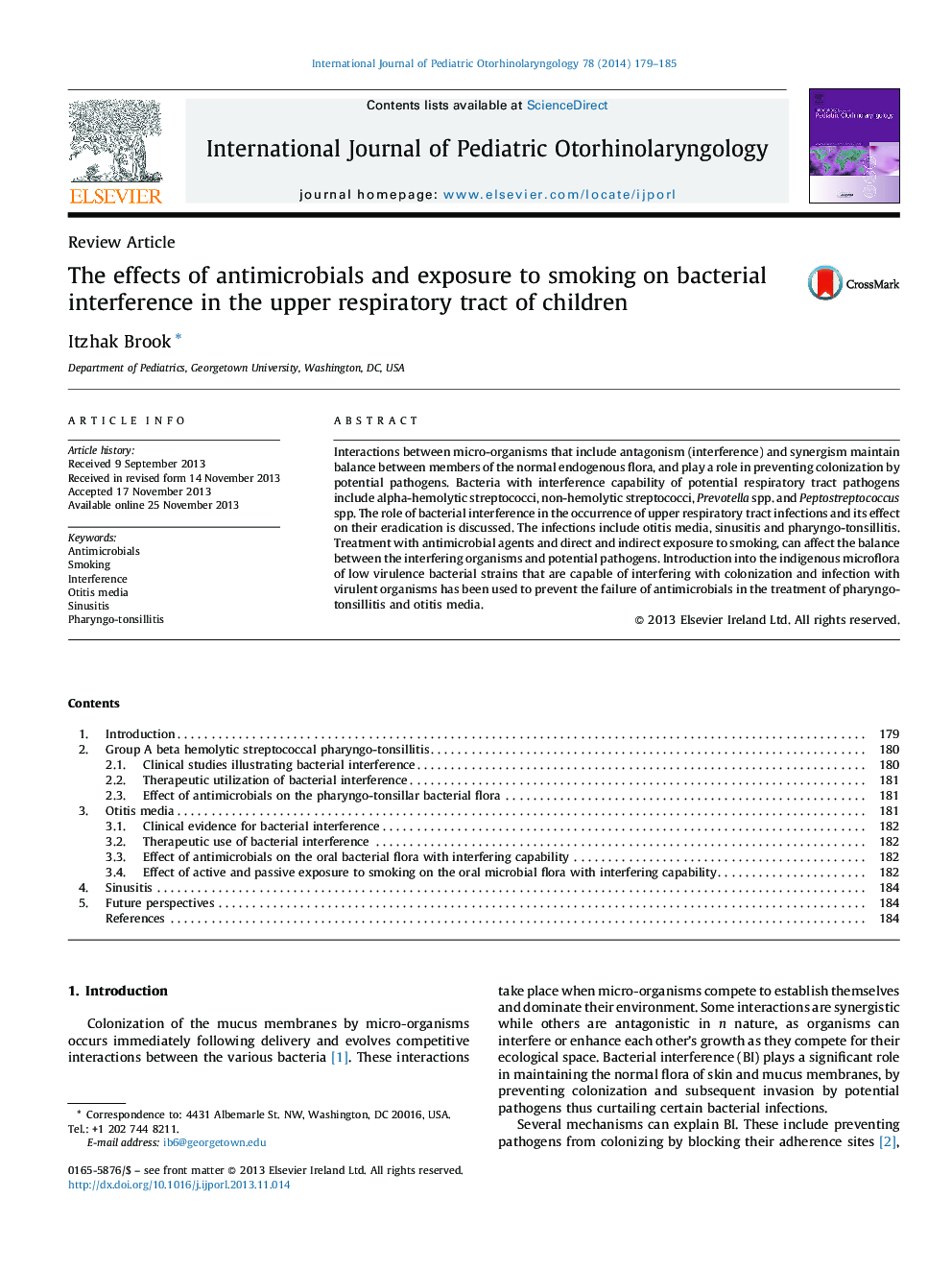| Article ID | Journal | Published Year | Pages | File Type |
|---|---|---|---|---|
| 6213800 | International Journal of Pediatric Otorhinolaryngology | 2014 | 7 Pages |
Interactions between micro-organisms that include antagonism (interference) and synergism maintain balance between members of the normal endogenous flora, and play a role in preventing colonization by potential pathogens. Bacteria with interference capability of potential respiratory tract pathogens include alpha-hemolytic streptococci, non-hemolytic streptococci, Prevotella spp. and Peptostreptococcus spp. The role of bacterial interference in the occurrence of upper respiratory tract infections and its effect on their eradication is discussed. The infections include otitis media, sinusitis and pharyngo-tonsillitis. Treatment with antimicrobial agents and direct and indirect exposure to smoking, can affect the balance between the interfering organisms and potential pathogens. Introduction into the indigenous microflora of low virulence bacterial strains that are capable of interfering with colonization and infection with virulent organisms has been used to prevent the failure of antimicrobials in the treatment of pharyngo-tonsillitis and otitis media.
